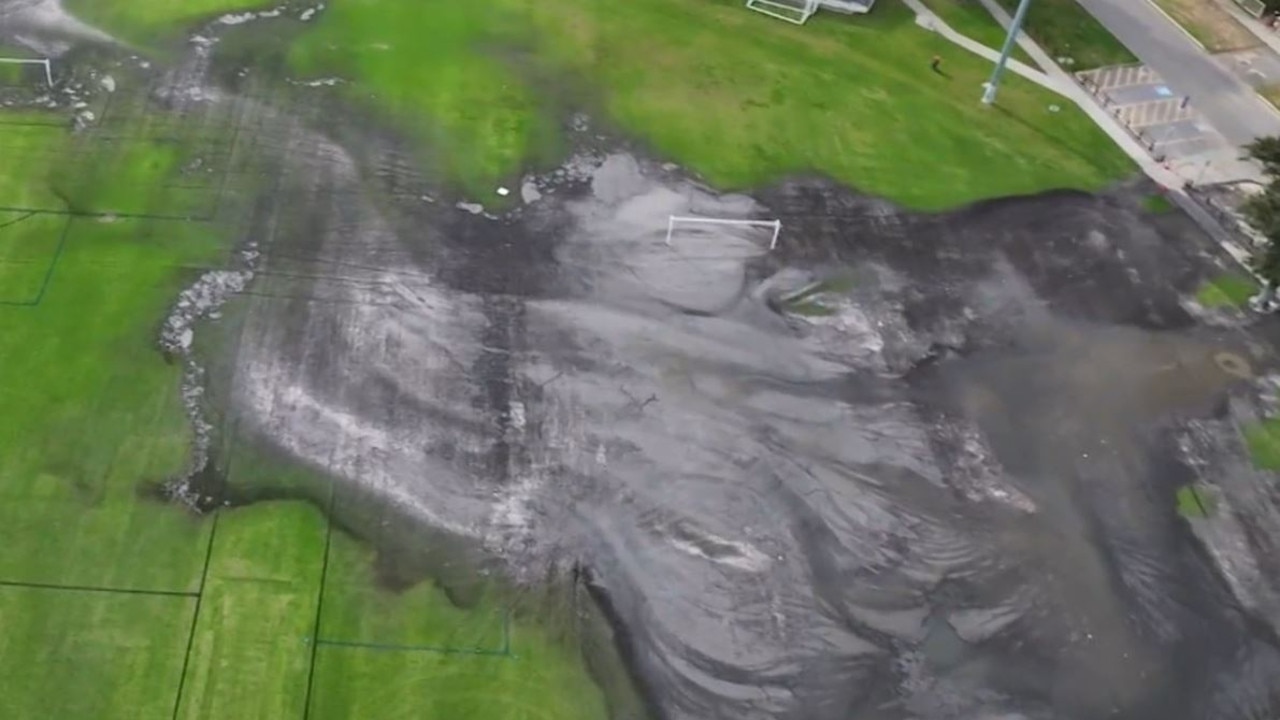Marrakesh earthquake updates: Race against the clock to find survivors
The Moroccan earthquake has wiped out entire villages as foreign rescue teams help search for survivors. See photos, video.
Environment
Don't miss out on the headlines from Environment. Followed categories will be added to My News.
Moroccan rescuers supported by foreign teams faced an intensifying race against time to dig out any survivors from the rubble of mountain villages after the country’s strongest-ever earthquake.
The 6.8-magnitude quake struck the Atlas mountains late on Friday southwest of the tourist centre of Marrakesh.
It has killed at least 2862 people and injured more than 2562 others, according to the latest official toll.
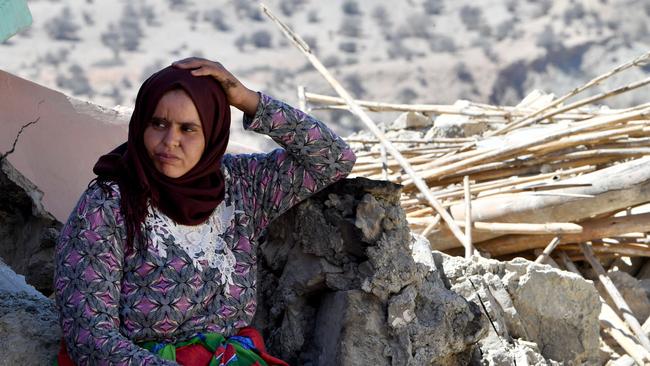
In the disaster-stricken community of Talat Nyacoub, 12 ambulances and several dozen 4X4s from the army and police were deployed while around 100 Moroccan rescuers were searching for signs of life amid the collapsed buildings.
Nearby, AFP saw a Spanish team of 30 firefighters, a doctor, nurse and two technicians co-ordinating with Moroccan authorities before starting to dig, as a helicopter flew overhead.
“The big difficulty is in zones remote and difficult to access, like here, but the injured are choppered out,” Annika Coll, who heads the Spanish team, told AFP.
About 70km north, another Spanish team from the Military Emergencies Unit (UME) had set up camp since Sunday night on the edge of Amizmiz village.
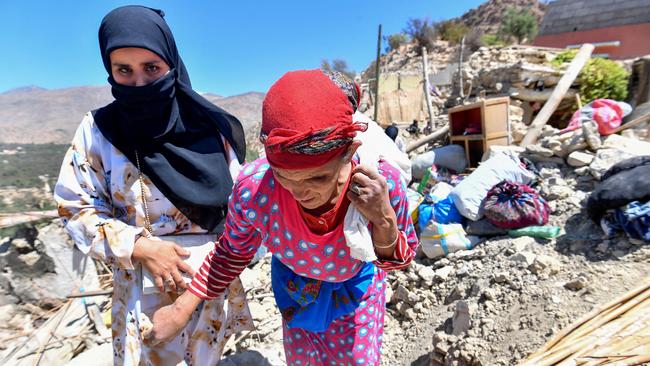
An aftershock startled Moroccans on Sunday as they mourned victims and scrambled to find survivors in the rubble.
Locals were sleeping in the streets after their homes collapsed or were feared to disintegrate after being damaged.
AFP journalists in Amizmiz saw Moroccan troops handing out hundreds of blankets to residents who had lost their homes.
“My mother died, her house is ruined. My place in Amizmiz no longer exists so we sleep outside in tents with my two children aged four months and six years,” said Hafid Ait Lahcen, 32, a construction worker.
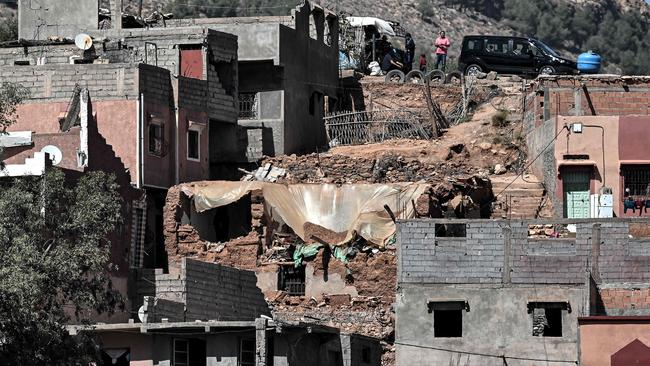
“No one from the authorities has offered us accommodation. We are completely lost.” Albert Vasquez, the Spanish unit’s communications officer, said his team was awaiting a meeting with Moroccan civil defence to determine exactly where they were needed.
Time was short, and Vasquez warned that “it’s very difficult to find people alive after three days” but “hope is still there”.
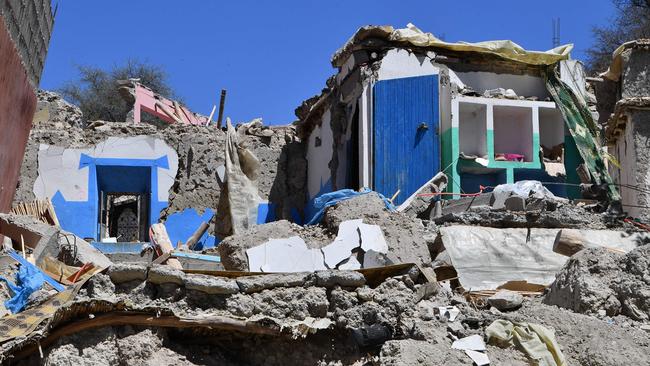
The rescuers are assisted by four dogs and microcameras that can be fed into the rubble in an effort to detect signs of life.
For Lahcen and Habiba Barouj, the help came too late.
An ambulance took their father, 81, to hospital with a broken leg.
The previous evening, they buried their mother who was killed in the quake.
“We didn’t see any rescuers. We had to get our father out from the rubble ourselves,” said Habiba Barouj, her face drawn.
“Our house has been swallowed up.”
The earthquake wiped out entire villages in the foothills of the Atlas mountains, where civilian rescuers and members of Morocco’s armed forces have searched for survivors and the bodies of the dead.
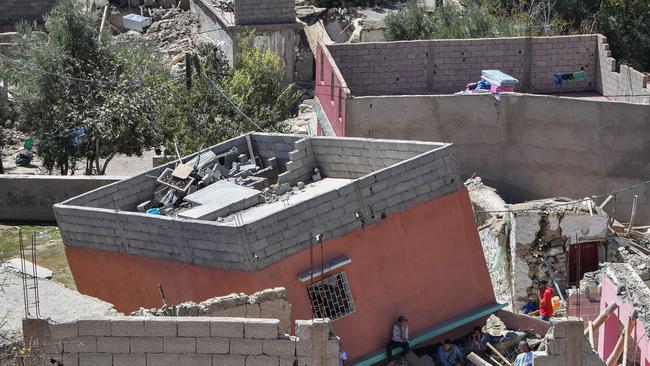
Many houses in remote mountain villages were built from mud bricks.
While the foreign teams begin to arrive, Moroccan authorities have erected emergency shelters.
Bright yellow tents were visible along the road into Tikht, a village which has effectively ceased to exist.
“Life is finished here,” said Mohssin Aksum, 33, who had family in the settlement.
“The village is dead.”
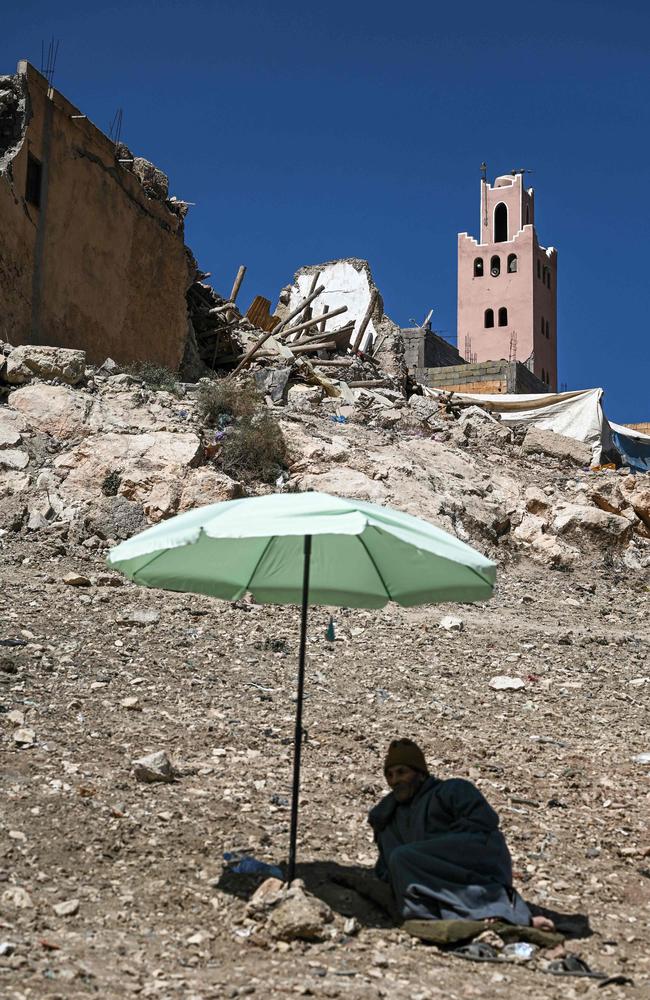
AUSSIE DESCRIBES MARRAKECH ‘ARMAGEDDON’
An Australian woman living in Morocco has described the moments after the deadly earthquake as like “armageddon”, as the death toll passed 2122 people.
Melinda Cowley told media that she has been living about 20 minutes from Marrakesh for the past eight years.
She said a friend had been staying with her on Friday night, and they were about to go to bed when the earthquake hit.
“I was just like, ‘Wow, what is happening?’” Ms Cowley told SBS News.
“It was like, honestly, armageddon.”
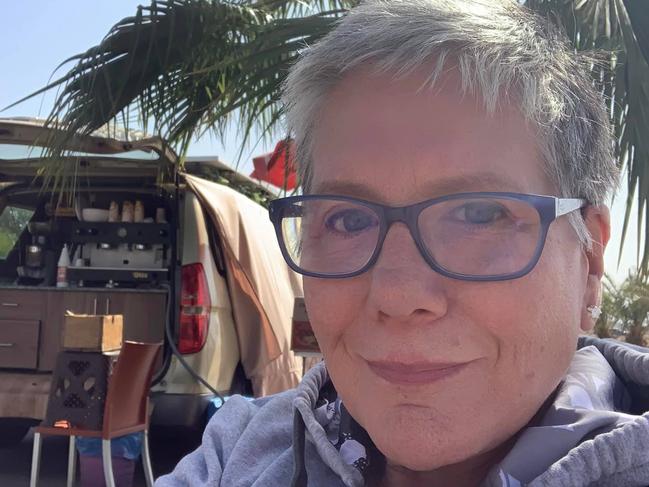
She said the tremor continued for more than a minute, before the power and Wi-Fi cut out. Her home sustained minor damage, but she said others were not so lucky.
“There’s a lot of damage everywhere; a lot of destruction,” Ms Cowley said.
“There’s buildings down, there’s rubble everywhere.”
Morocco’s deadliest earthquake in decades has left at least 2421 injured, authorities said, as troops and emergency services scrambled to reach remote mountain villages where casualties are still feared trapped.
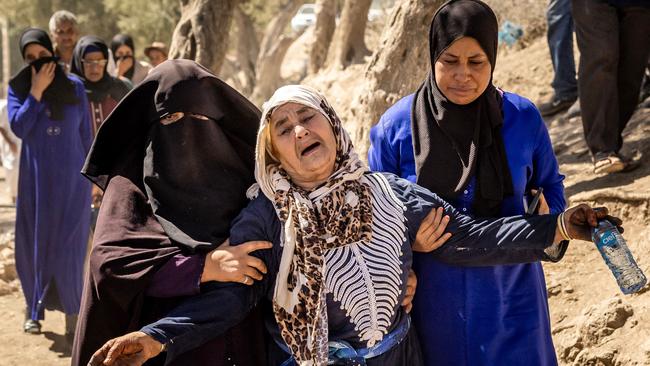
The Moroccan Embassy, Australia has posted on its Facebook page: “We are deeply saddened by the devastating earthquake that struck Morocco on Friday night. Our thoughts are with those who lost loved ones as well as those in affected areas. If you have any questions or need any help during this time, please reach out to us via direct message or email at emb.aus@maec.gov.ma”.
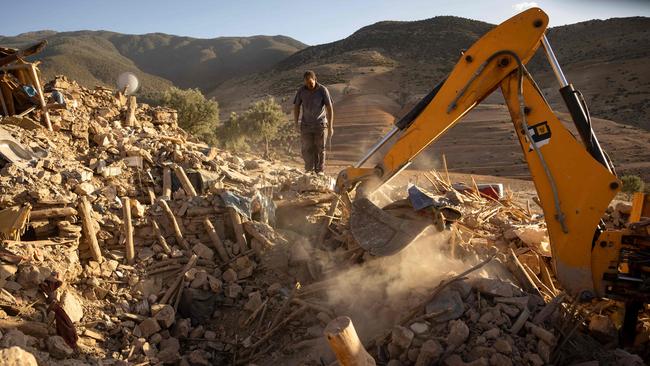
According to SBS, acting Australian Prime Minister Richard Marles said there doesn’t appear to be any Australians caught up in the quake.
“We do have an embassy in Rabat, and there are investigations now about whether or not Australians have been caught up in the earthquake,” he said.
“It doesn’t appear that any have, but obviously it will be a situation which will be closely monitored as well.”
“This is a part of the world that many Australians have visited, so I know that there will be an enormous amount of concern and sympathy for the Moroccan people.”
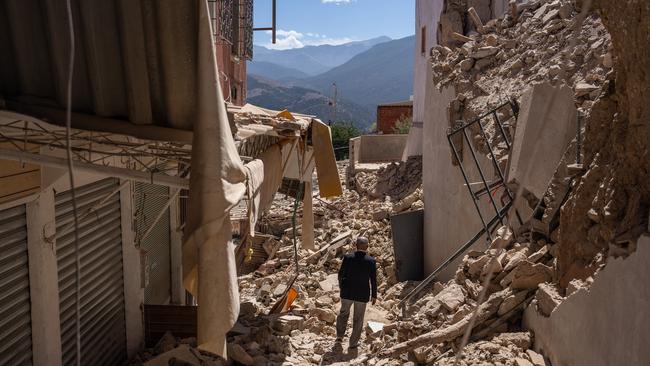
The Department of Foreign Affairs and Trade said it was not aware of any Australian casualties or hospitalisations at this time.
“The Australian Government offers its deepest sympathies to those affected by the earthquake in Morocco’s High Atlas Mountains. There has been a devastating loss of life and destruction of property. Australia stands ready to consider any request for assistance. Our thoughts are also with the Australian-Moroccan community,” a spokesperson said.
The United Nations said 300,000 people were affected by Friday night’s quake with the death toll expected to rise.
“There are people dying under the rubble, and we cannot do anything to save them,” said Arnaud Fraisse, founder of Rescuers Without Borders.
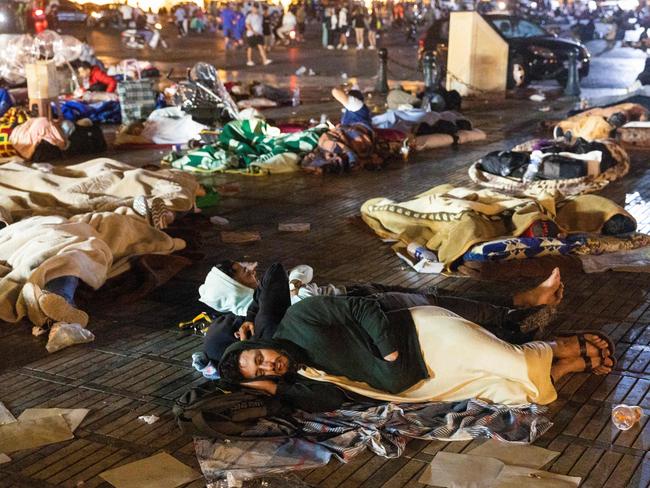
Authorities have declared three days of national mourning, but the Red Cross warned that it could take years to repair the damage.
Saturday’s quake caused widespread damage and sent terrified residents and tourists scrambling to safety in the middle of the night.
The 6.8-magnitude quake struck a mountainous area 72km southwest of tourist hotspot Marrakesh at 11.11pm local time Friday.
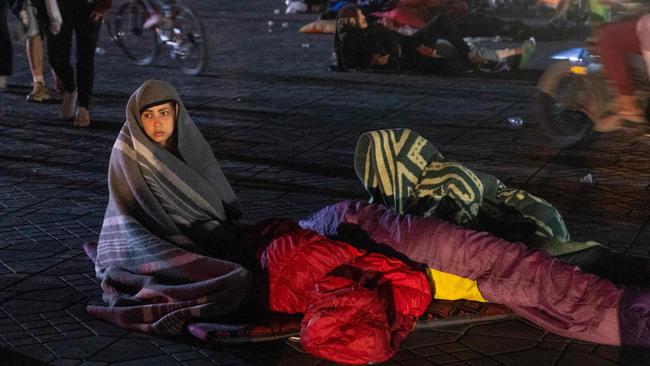
Strong tremors were also felt in the coastal cities of Rabat, Casablanca and Essaouira with aftershocks predicted to be in the “high fives”.
It was the most powerful quake to ever hit the country, and one expert called it the region’s “biggest in more than 120 years”.
“The problem is that where destructive earthquakes are rare, buildings are simply not constructed robustly enough to cope with strong ground shaking, so many collapse, resulting in high casualties,” said Bill McGuire, professor emeritus of geophysical and climate hazards at University College London.
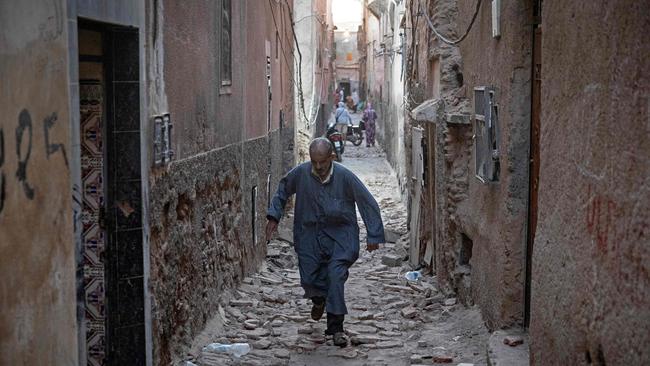
The quake has left many stranded as their homes were turned into rubble.
“We felt a very violent tremor, and I realised it was an earthquake,” Abdelhak El Amrani, 33, told AFP by telephone from Marrakesh.
“I could see buildings moving,” Amrani said who went outside, joining many other people, “all in shock and panic”.
“The children were crying and the parents were distraught.
WORLD PLEDGES TO HELP
Morocco said late Sunday it was accepting offers from just four countries: Britain, Spain, Qatar and the United Arab Emirates.
But countries around the world have lined up to offered to help Morocco.
The International Federation for Red Cross and Red Crescent Societies (IFRC) has released over $1 million from its emergency disaster fund to support the Moroccan Red Crescent’s work on the ground.
“The next 24 to 48 hours will be critical in terms of saving lives,” the global humanitarian network warned on Saturday, adding that help could be needed for months or even years.
Spain on Sunday sent 86 military rescuers and eight search dogs to Morocco after receiving a formal request for help from Rabat.
A first team, from the armed forces’ Emergencies Unit, took off in an A400 military plane bound for Marrakesh to “help in the search and rescue of survivors”, the defence ministry said.
Another military plane took off from a base in Torrejon de Ardoz near Madrid, an interior ministry spokesman said.
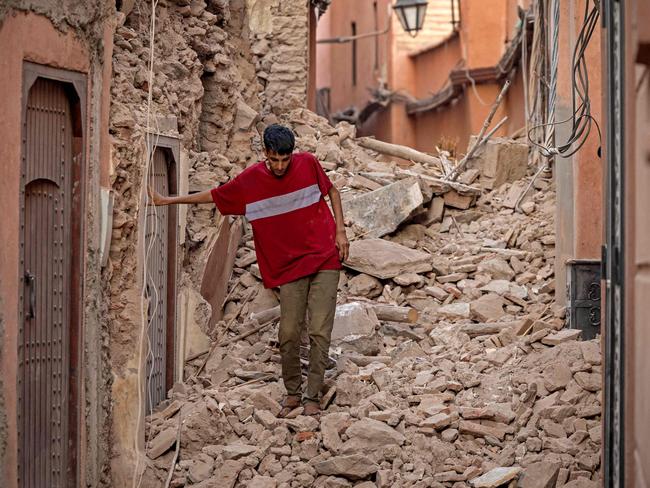
Qatar said it was also sending a rescue team.
A team of French volunteer firefighters has arrived in Morocco and President Emmanuel Macron said more, substantial assistance was available, should Morocco request it.
“We have mobilised all technical and security teams to be able to intervene when the Moroccan authorities deem it useful.”
The United States has told Morocco it is “ready to provide significant assistance” including search and rescue teams.
“We are also ready to release funds at the right time that can help the Moroccans recover and deal with this horrific tragedy,” Deputy National Security Adviser Jon Finer said.
“The United States will be with them at every step of the way when they are ready to avail themselves of what we have to offer,” he added.
Switzerland has offered to provide temporary shelters, water treatment and distribution equipment, sanitation facilities and hygiene kits.
Belgium has offered help including medical teams and field hospitals. The Flanders region, home to a large Moroccan community, said it would provide 200,000 euros ($214,270) in emergency aid through the Red Cross, while the Wallonia region has pledged to provide 500,000 euros.
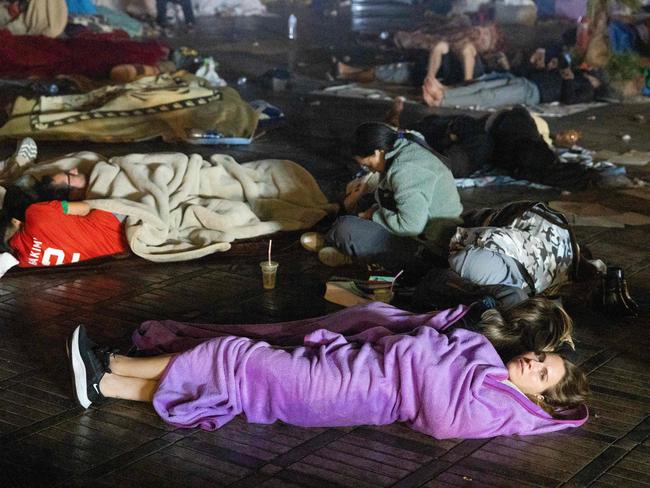
Italy has offered the help of its civil protection agency and fire service, while the Italian Catholic Church has sent 300,000 euros ($321,400) in aid through NGO Caritas Italy.
Italian President Sergio Mattarella on Saturday stressed Italy’s “willingness to contribute to the complex rescue work”.
Turkey has offered to send 265 rescue workers and 1000 tents.
Poland and Israel said they were ready to provide assistance including search and rescue teams.
Iraq and Jordan have offered to provide all possible forms of assistance to Morocco.
The heads of the World Bank, International Monetary Fund, African Union and the European Commission, together with the presidents of France and India, pledged in a joint statement to “mobilise our technical and financial tools and assistance” to help Morocco.
Pharmaceutical giant AstraZeneca “pledged over $1 million to support immediate humanitarian relief efforts with leading global non-profit humanitarian partners and through matching of employee donations”.
‘UNBEARABLE’ SCREAMS
Faisal Baddour, an engineer, said he felt the earthquake three times in his building.
“There are families who are still sleeping outside because we were so scared of the force of this earthquake,” he said.
“It was as if a train was passing close to our houses.”
Frenchman Michael Bizet, 43, who owns three traditional riad houses in Marrakesh’s old town, told AFP that he was in bed when the quake struck.
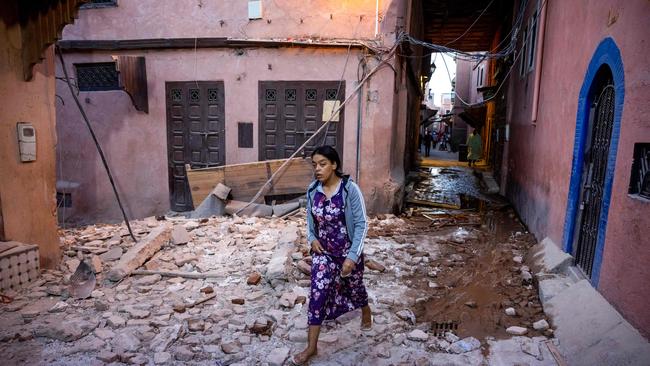
“I thought my bed was going to fly away. I went out into the street half-naked and immediately went to see my riads. It was total chaos, a real catastrophe, madness,” he said.
Bizet shared video of piles of rubble from collapsed walls in the streets.
Other footage on social media showed part of a minaret collapsed on Jemaa el-Fna square in the historic city.
An AFP correspondent saw hundreds of people flocking to the square to spend the night for fear of aftershocks, some with blankets while others slept on the ground.
Houda Outassaf, a local resident, told AFP he was walking around the square when the ground began to shake.
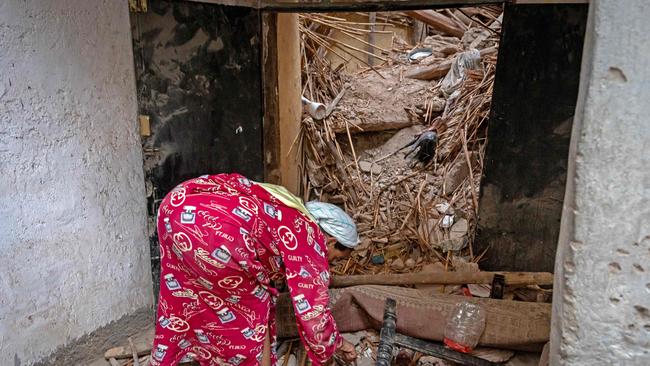
“It was a truly staggering sensation. We’re safe and sound, but I’m still in shock,” he said.
“I have at least 10 members of my family who died … I can hardly believe it, as I was with them no more than two days ago.”
Fayssal Badour, another Marrakesh resident, told AFP the earthquake hit while he was driving.
“I stopped and realised what a disaster it was … The screaming and crying was unbearable,” he said.
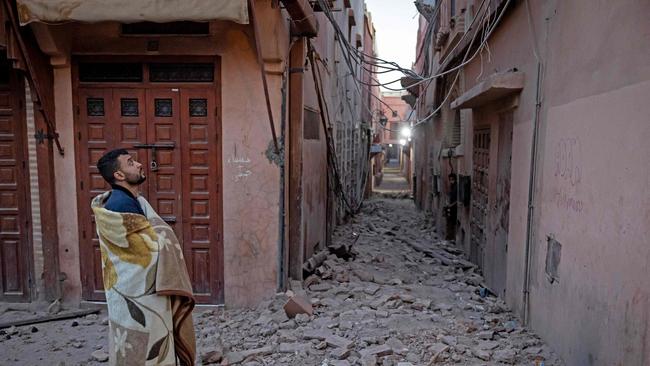
The interior ministry said authorities have “mobilised all the necessary resources to intervene and help the affected areas”.
The regional blood transfusion centre in Marrakesh called on residents to donate blood for those injured.
In the town of Al-Haouz, near the quake’s epicentre, a family was trapped in the rubble after their house collapsed, local media reported.
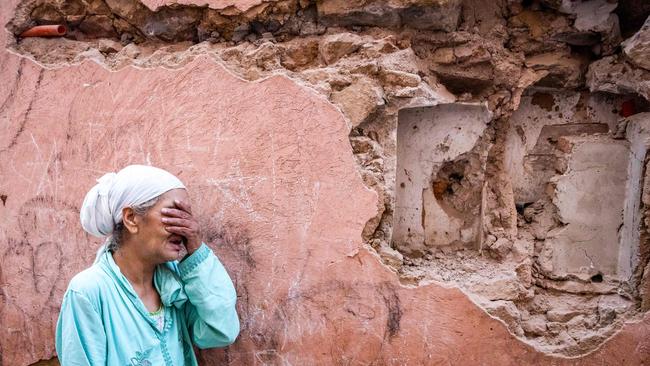
SIGNIFICANT DAMAGE LIKELY
“We heard screams at the time of the tremor,” a resident of Essaouira, 200km west of Marrakesh, told AFP.
“People are in the squares, in the cafes, preferring to sleep outside. Pieces of facades have fallen.”
The USGS PAGER system, which provides preliminary assessments on the impact of earthquakes, issued a “red alert” for economic losses, saying extensive damage is probable and the disaster is likely widespread.
Past events with this alert level have required a national or international level response, according to the US government agency.
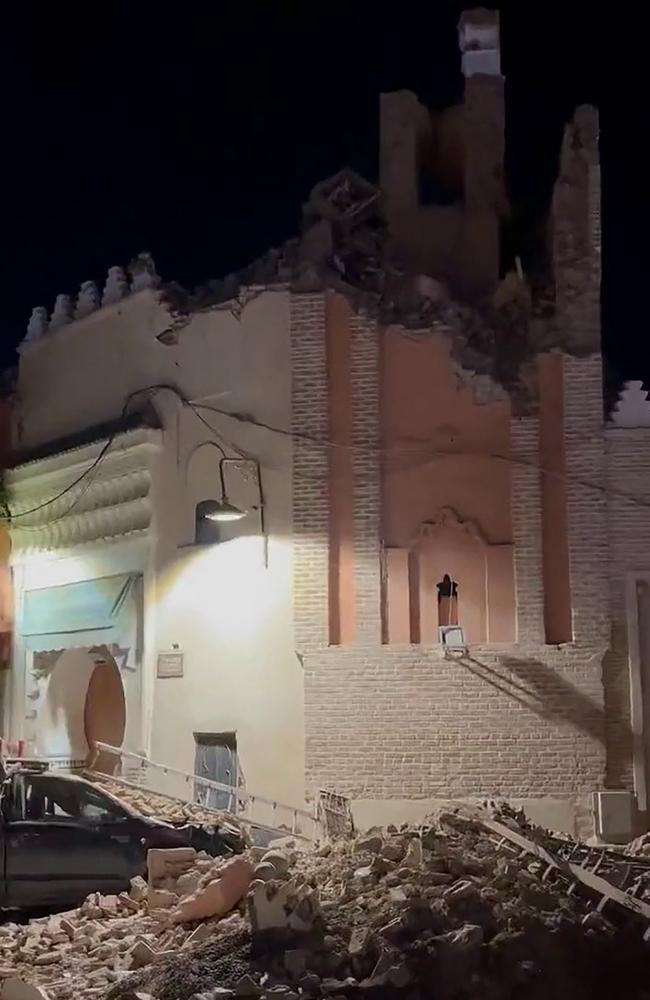
Internet connectivity was disrupted in Marrakesh due to power cuts, according to global internet monitor NetBlocks.
US President Joe Biden said he was “deeply saddened” as European leaders offered condolences.
Russian President Vladimir Putin and Arab countries, including Saudi Arabia, the United Arab Emirates, and Egypt, along with the Organisation of Islamic Cooperation also sent their condolences.
France and Spain have promised to send aid including rescuers to the quake-hit nation.
Benjamin Netanyahu, the prime minister of Israel which established diplomatic ties with Morocco in 2020, ordered “any necessary assistance.”
Other nations pledging help include Switzerland, Italy, Belgium, Poland, Iraq, Turkey and Jordan.
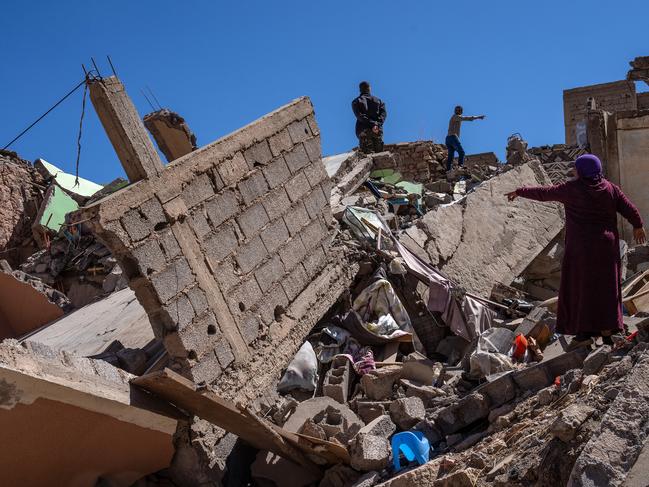
The International Federation for Red Cross and Red Crescent Societies (IFRC) has released over $1 million from its emergency disaster fund to support the Moroccan Red Crescent’s work on the ground.
The earthquake was also felt in neighbouring Algeria, where the Algerian Civil Defence said it had not caused any damage or casualties.
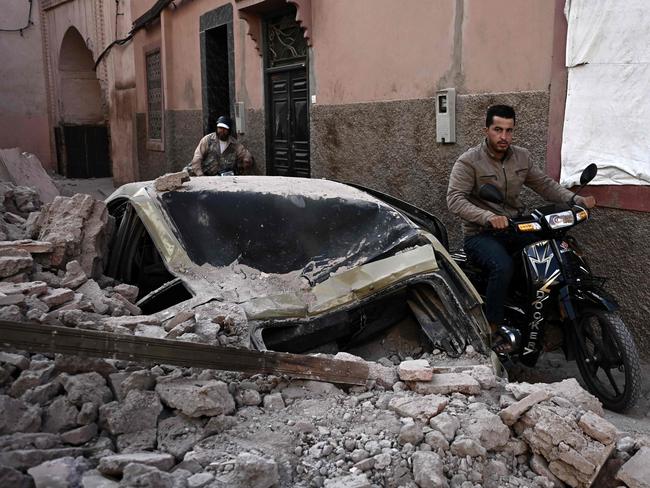
In 2004, at least 628 people were killed and 926 injured when a quake hit Al Hoceima in northeastern Morocco, and in 1960 a magnitude 6.7 quake in Agadir killed more than 12,000.
The 7.3-magnitude El Asnam earthquake in neighbouring Algeria in 1980 killed 2,500 people and left at least 300,000 homeless.
Australians affected by the earthquake should continue to follow the directions of local authorities. Australians in need of emergency consular assistance should contact the Australian Government’s 24-hour Consular Emergency Centre 1300 555 135 (within Australia) and +61 2 6261 3305 (from overseas). The travel advice for Morocco was updated on 9 September and continues to be reviewed. Australians overseas are encouraged to subscribe to Smartraveller travel advice for the latest information.
GlobalGiving has launched the Morocco Earthquake Relief Fund, providing urgently needed relief efforts in the wake of the devastating earthquake. To donate to the fund, go to globalgiving.org
More Coverage
Originally published as Marrakesh earthquake updates: Race against the clock to find survivors


